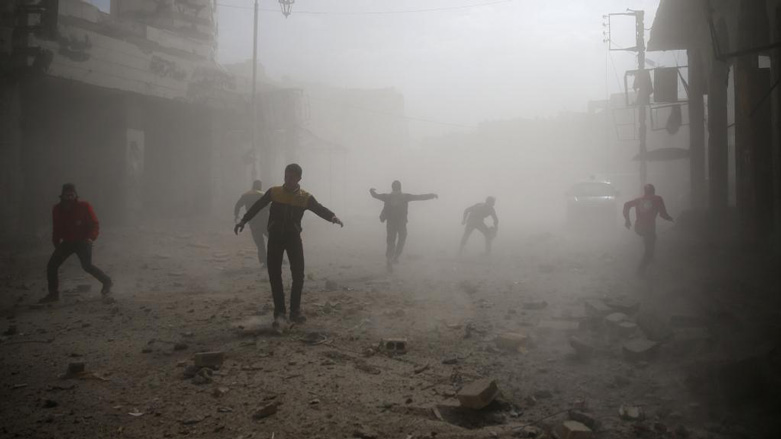International inspectors: Chlorine used as chemical weapon in Idlib Province

WASHINGTON DC (Kurdistan 24) - The Organization for the Prohibition of Chemical Weapons (OPCW) reported Tuesday that “chlorine was likely used as a chemical weapon” in Syria’s Idlib province last February, according to a statement released by the international organization.
The OPCW’s Fact-Finding Mission (FFM) conducted the inquiry and a statement issued on Thursday by Heather Nauert, State Department Spokesperson, hailed the FFM’s “comprehensive investigation,” adding the “attack bears all the hallmarks of similar past chemical weapons attacks by the Assad regime against its own people.”
The FFM does not determine which party was responsible for an attack. That work had been done by the Joint Investigative Mechanism (JIM), which was created by the UN Security Council in Aug. 2015, in response to the Syrian regime’s continued use of chemical weapons, in the face of numerous international protests.
However, the JIM ceased to exist last November after Russia repeatedly vetoed the renewal of its work, although it was “the only impartial and independent body with the mandate for attributing responsibility,” Nauert complained.
Nauert identified Russia in particular, as well as Iran, as key enablers of the Assad regime and its atrocities.
Russia “promised the world in 2013 that it would guarantee the destruction of Syria’s chemical weapons stocks,” she stated, and Russia “is ultimately responsible for their continued use” by the Syrian regime.
“We are committed to ensuring that all those responsible for the use of chemical weapons in Syria are held to account,” she continued. “We will not rest in our efforts to seek justice for the victims of these abhorrent chemical weapons strikes.”
On Friday, more than 30 countries are convening in Paris for a Ministerial Meeting of the International Partnership against Impunity for the Use of Chemical Weapons, Nauert explained.
The conference “will address recent chemical weapons use by States and non-State actors,” she added.
The Partnership will also consider actions that it “can take to contribute to the deterrence of future use” of chemical weapons and of “attribution”—determining who was responsible—“in cases where use has occurred.”
Of course, if it is not possible to attribute responsibility for the use of chemical weapons in a timely fashion, it is extremely difficult to deter such attacks because the possibility of punishment is remote.
Syria will clearly be an issue at the Paris meeting. Russia’s attempt in early March to assassinate a defector in Britain by using a sophisticated nerve agent may well be discussed too.
On Thursday, Syrian President Bashar al-Assad flew to Russia’s Black Sea resort of Sochi, where he met President Vladimir Putin.
Assad thanked Putin for Russia’s assistance to Syria and proclaimed, “Thanks to [our] military success, we are succeeding in normalizing the situation in the country.”
Editing by Nadia Riva
